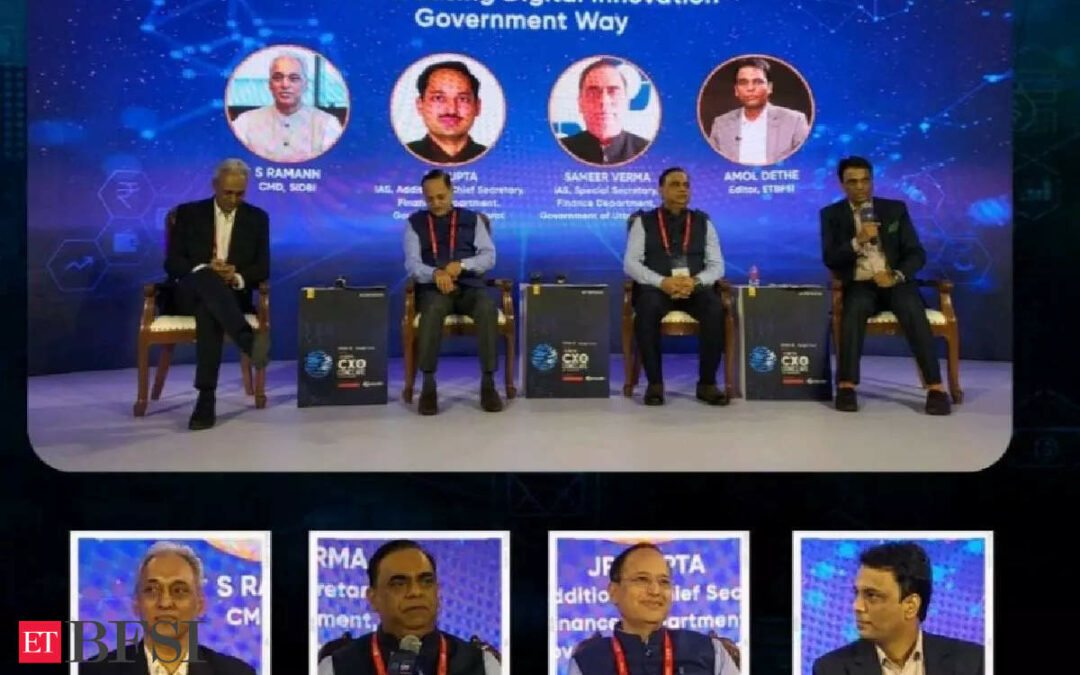Bringing the non-GST small firms into the credit fold and disrupting working capital is important to break the digital divide in the country, according to senior government finance honchos.
At a panel discussion on ‘Democratising Digital Innovation-Government Way’ at the ETBFSI CXO Conclave, S Ramann, CMD, SIDBI said, “For the GST segment where information is available, two big things have happened. One is GST Sahay where we tested over 600 cases where we are saying that based on the transaction history of GST we are giving finance for invoices. We are pulling the GST data with banks, matching the data as much as possible, and this is really about disrupting the working capital. We are allowing this for SMEs which typically get denied of working cap from banks. It’s an unsecured facility but because we have information as collateral we can do it right.
GST Sahay is an unsecured credit facility which has got India ahead of several countries.
He said Sidbi is looking to register 1 lakh MSMEs on the Uyami platform per day to improve credit accessibility for this segment.
Stating that it is now about information collateral and not the physical collateral, Ramann said, its FIT ranking triangulates data on GST, ITR and bank statements. It has tracked one lakh loans and understood the probability of defaults, and now sanctioning loans on yes and no questioning. If the answer is no, we are going into a detailed analysis.
He said there were about 9 crore non-GST businesses, of which one and a half crore have come under GST fold. Sidbi is helping the remaining 7 crore entities through its Udaymi assist programme.
Digital innovation
JP Gupta, IAS, Additional Chief Secretary, Finance Department, said digital innovation in the financial world has helped democracy deepen further in our country. The last 10 years have been path-breaking with the JAM (Jan Dhan, Aadhaar, Mobile) trinity.
Increasing connectivity and reduction of the digital divide is taking us to more and more democratised digital innovation, he said.
“By connecting more people, have been able to open more accounts, it’s a long way to go but the direction is clear. The government, digital and financial players are dong that,” he said.
Sameer Verma, IAS, Special Secretary, Finance Department, Government of Uttar Pradesh, said for enhancing financial inclusion, need to increase insurance penetration.
Insurance is a push product and given the IRDAI’s ‘Insurance for all by 2047’ goal, it is going to be one of the most important discussion topics.
He said everybody should be pushed to have formal access to bank accounts and NBFCs should be allowed to take deposits. Stressing that the 8 per cent inactive Jan Dhan accounts should be converted to active ones, he said they are currently unidirectional with the government transferring money. it should be two days with the account holders also depositing in them.











